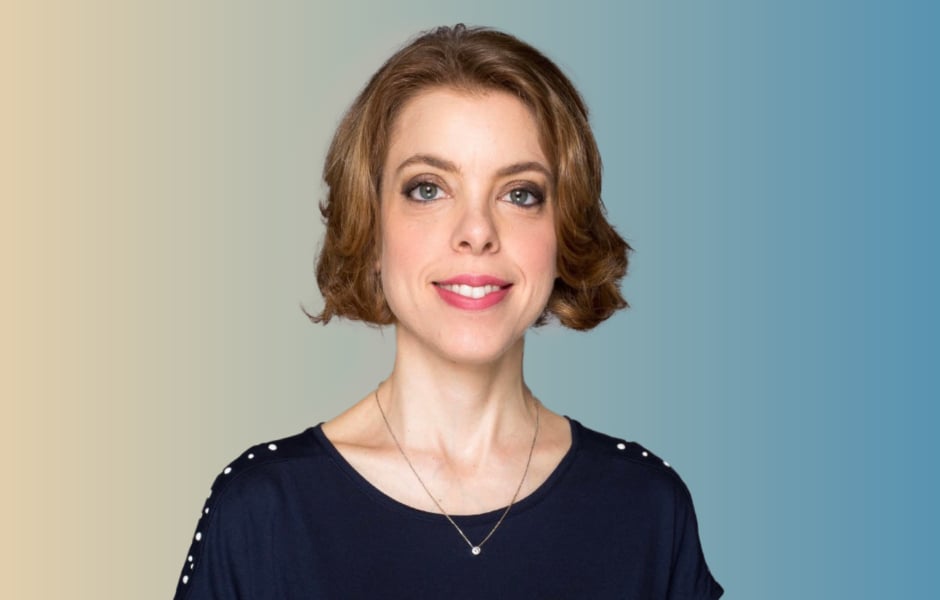Dr Tami Nussbaum, Senior Medical Director, GI Pipeline, Global Medical Lead, Takeda, shares why she left medicine for pharma, the challenges of rare disease and how she avoids burnout
Interview by Isabel O’Brien
What inspired you to pursue a career in pharma, and how did you land in your role at Takeda?
I started my career in clinical practice, working in the neurology division of a hospital in Tel Aviv. But I’ve always had a passion for combining medicine and business, which drew me to the pharmaceutical industry. Working in this area of healthcare allows me to apply my clinical experience to research and development to help bring innovative medicines to patients with significant unmet needs, often in areas where there are currently no available treatments.
After nearly six years at another pharma company, I was grateful to become the medical head at Takeda in Israel. Today, I’m the global medical affairs lead for an investigational treatment in alpha-1 antitrypsin deficiency (AATD) liver disease. This role has been incredibly fulfilling as we are making a meaningful difference in patients’ lives with greater awareness and evidence generation for a disease that is underdiagnosed and frequently mistaken for other liver diseases.
What’s the biggest challenge you’re navigating in your role right now?
Working on a rare disease can be a challenge, an opportunity and an adventure altogether! Some of the headwinds we face include low awareness of AATD liver disease and the lack of clear guidelines on patient identification, which can have a downstream impact on early detection, clinical trial recruitment and optimal care. These challenges are not unique to Takeda; what sets us apart is our values-based approach to the opportunities ahead and collaboration with the AATD community in paving a path forward. We recognise that research and advancements in clinical care are symbiotic, so partnership between industry, healthcare professionals and patient communities is crucial if we want to change the trajectory and management of this underdiagnosed genetic disease. We’re also working closely with experts and medical societies to address the gap of clinical guidelines for AATD liver disease.
Working on a rare disease can be a challenge, an opportunity and an adventure
What does a great company culture look like to you?
A great company culture fosters an environment where employees are encouraged to pursue their passions and opportunities for growth, even if it means moving between different roles or departments. People need to feel a sense of belonging and encouragement, but also empowerment. That’s been my experience.
For example, I recognised that one way Takeda could help fill knowledge gaps was to provide a comprehensive source of information on AATD. This led to the launch of Unite Alpha, an educational resource for healthcare professionals outside of the US and UK, which has since continued to evolve to provide clinical research, infographics and expert videos on the diagnosis and management of AATD. I was given the runway to be creative and introduce something new. This culture of support and recognition of talent is what makes Takeda truly exceptional.
What are your key measurements of success, both professionally and personally?
Success, to me, is about continuous growth and improvement. Professionally, I strive to deliver impactful results that contribute to the advancement of clinical science and improve patients’ lives by achieving the ambitious goals I set for myself and my team. Personally, I focus on maintaining a balanced life. For me, a balanced life means healthy diet, sport and family time. By setting clear personal goals and working diligently to achieve them, I ensure that I’m always moving forward and making meaningful contributions in my work, as well as to my own well-being.
What’s your secret to avoiding burnout in a high-pressure career, and how do you prioritise self-care?
I’m a person who likes to make a list and then check the box—it gives me a sense of accomplishment! My natural tendency is also to overthink things. These can both be tricky to navigate in a high-pressure career. My secret to avoiding burnout is to use a positive mindset to reframe how I think about things. I try to focus on what went well rather than dwelling on minor mistakes.
Being naturally introspective, I also find support within myself. My go-to for self-care is fitness and nutrition. These two components are essential for my overall well-being, providing me with the resilience and energy needed to stay productive and focused in all aspects of my life.
What’s the boldest prediction you have for the future of the pharmaceutical industry, and why?
I believe the pharmaceutical industry of the future will discover more treatments for incurable diseases. That is the ultimate goal: to address significant unmet needs to improve patient outcomes. With more collaboration among different stakeholders and the use of AI-driven tools in the clinical development process, we can enhance the industry’s ability to innovate and better respond to global health needs.









